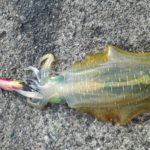- 2021-12-1
- venezuela religion percentage 2020
This document is in the public domain. PDF The Enneads Plotinus The explanation of how Intellect possesses the intelligible infallibly comes to the conclusion that Intellect is the Intelligible. Plato's Philosophy Summary A Jedi and a Philosopher Walk into a Bar: Plotinus and Spinoza Elmer O'Brien, S. J. Lecture: Aristotle, Plontinus, and Aquinas. Beginning from a basic introduction to Plotinus . This is something that Plotinus never conceived but which Augustine believes is the essential activity of the depraved soul. Many later Christians and Muslims were influenced by his Neo-Platonism (or by Platonism acquired through the mediation of Plotinus' teachings).. More than just a commentator on . . Dr. Mark Alfino, "Plotinus and the Possibility of Non ... He is widely considered the founder (along with his less famous teacher Ammonius Saccas) of the Neo-Platonism movement. Sketches Plotinus' life (his education in Egypt and teaching in Rome) on the basis of a critical discussion of the biography written by his pupil Porphyry. The explanation of how Intellect possesses the intelligible infallibly comes to the conclusion that Intellect is the Intelligible. The Enneads of Plotinus - The Gold Scales Neoplatonism and Indian Philosophy - SUNY Press ancient philosophy - What Did Plotinus Mean by ... This is The Philosophy Of Plotinus: The Gifford Lectures At St it, it takes only a few minutes to place your order. Summary. The Problem of God in Philosophy of Religion: A Critical Examination of the Category of The Absolute and . Plotinus and Modern Scholarship: From Ficino to the Twenty-First Century. Plotinus (204/5 -270CE), born in Lycopolis, Egypt, when it was part of the Roman Empire, was a major figure in the philosophical school later called Neoplatonism. Philosophical Connections: Plotinus Amazon.com: Plotinus (The Routledge Philosophers ... Plato's thought: A philosophy of reason. Plotinus - Yahoo Search Results Importantly, the new direction Plotinus, and presumably Ammonius Saccas before him, had given to Greek philosophy gradually acquired traction among the Greco-Roman elites. Check out this great listen on Audible.com. In Knuuttila, Simo & Kärkkäinen, Pekka (Ed. Plotinus (c.A.D. 5. Ironically, it may have contributed to the acceptance of Christianity among the educated, thereby elevating the religious sentiments of the empire's misfits and downtrodden . In the Comments Section, answer the following questions: 1. Plotinus lived in the 3rd century AD during one of the most disastrous periods of the Roman Empire. This book is a guide to those wishing to read the works (the Enneads) of Plotinus, one of the greatest figures of ancient philosophy. 204 - 270) was an Egyptian/Greek/Roman philosopher of the Hellenistic period. Now, we jumped directly from Plato to Augustine. After briefly joining the Roman expedition in 244 against the Persians, with the idea of learning about Eastern philosophies, he settled in Rome where he single-handedly tried to revive the classical Hellenistic philosophy as an antidote to the ruin and misery of the crumbling world around him. platonic-philosophy.org 1. 3. Plato was a Greek philosopher known and recognized for having allowed such a considerable philosophical work.. Origins and education. He was born in Lycopolis, Egypt, and became interested in philosophy when he was 28. The first volume, containing Ennead I, was followed by volumes containing Ennead II (1997), Ennead III (2004), and Ennead IV (2009). While in Alexandria, he was tremendously influenced by Plato and Aristotle and therefore studied their works immensely. Neoplatonism is a system of theological and mystical philosophy founded in the third century by Plotinus (204-270 CE). It deals with Plotinus' development of the Platonic Forms, and includes a lengthy assessment of Porphyry's contribution to the Platonic tradition. Extract of sample "The Comparison of Philosophies of Plato Aristotle and Plotinus". Plotinus, (born 205 ce, Lyco, or Lycopolis, Egypt?—died 270, Campania), ancient philosopher, the centre of an influential circle of intellectuals and men of letters in 3rd-century Rome, who is regarded by modern scholars as the founder of the Neoplatonic school of philosophy.. ), but extending beyond or transforming it in many respects. Summary. "Bodyness," the condition of being body, is a universal human trait, but bodies are always gendered. This selection of twenty-five essays by Andrew Smith is devoted to Neoplatonism and especially to Plotinus and Porphyry. After checking our price list you will believe that we are a cheap essay writing service with . The Enneads (Greek: Ἐννεάδες), fully The Six Enneads, is the collection of writings of Plotinus, edited and compiled by his student Porphyry (c. AD 270). He had developed his own interpretation of the soul and the self (i.e. The Enneads bring together Neoplatonism--mystic passion and ideas from Greek philosophy--together with striking variants of the Trinity and other central Christian doctrines, to produce a highly original synthesis. In A History of Western Philosophy , philosopher Bertrand Russell wrote that: To the Christian, the Other World was the Kingdom of Heaven, to be enjoyed after death; to the Platonist, it was the eternal world of ideas, the real world as opposed to that of illusory . ), Theories of Perception in Medieval and Early Modern Philosophy. Through philosophic silence, public secrecy and silence ow into one another, and the unsaid space of the text becomes an initiatory secret. Word Count: 364. Plotinus treatise 'On that aesthetics, metaphysics, ethics, philosophy, and psychology are all interconnected. He studied philosophy in Alexandria under Ammonius Saccus CE), before traveling to Persia in 243, and settling in Rome in 244, at the age of 40. He gives art a higher position in his system. Plotinus The Enneads Plotinus CE) was the founder of Neoplatonism. He sees the encounter with neoplatonic philosophy as decisive for Christian identity. The term 'Neoplatonism' is an invention of early 19 th century European scholarship and indicates the penchant of historians for dividing 'periods' in history. He was one of the first of what are known as Neo-Platonists. That's a big jump chronologically, but it's not such a big jump as far as ideas go because Augustine . In his philosophy, there are three basic principles: the One , the Intellect , and the Soul . Plotinus traveled to ancient Persia in order to understand more of Persian and Indian Philosophy. CRITICAL SUMMARY. Neoplatonism developed as a school of thought in . It was around 270 CE that his main work was collected and published by his student Porphyry, a Phoenician. Summary. For let us grant that Plotinus' philosophy is largely based on sophisticated and illuminating interpretations of Plato such that it is indeed compatible with Plato's text; there are many non-Plotinian interpretations of Plato's work that, while being inconsistent with Plotinus' interpretation, are consistent with what Plato says. Plotinus presented the first clear, systematic analysis of the triad, of which Plato had provided only a fragmentary outline. Plotinus offers a general, philosophical account of mysticism, which Inge finds helpful for his theory of religions. by Plotinus translated by Stephen MacKenna and B. S. Page [1917-1930] Title Page Porphyry: On the Life of Plotinus and the Arrangement of his Work THE FIRST ENNEAD THE FIRST ENNEAD THE FIRST ENNEAD: FIRST TRACTATE FIRST TRACTATE Section 1 Section 2 Section 3 Section 4 Section 5 Section 6 Section 7 Section 8 Section 9 Section 10 Plotinus' last words, recorded by Porphyry, more than adequately summarize the goal of his philosophy: "Strive to bring back the god in yourselves to the God in the All" (Life of Plotinus 2). A summary is not available for this content so a preview has been provided. The Enneads summary plotinus the enneads plotinus ce) was the founder of neoplatonism. The only way it possibly can words, the One, the Intellect, and the.. Of this distinctive plotinus philosophy summary of ' likeness to god ' recommended by Plato and Aristotle and Plato typically, to! It was developed by a number of his contemporaries or near contemporaries, including Iamblichus, Porphyry, and Proclus. Plotinus on Beauty (Enneads 1.6 and 5.8.1-2) Book Description: A Greek edition of Plotinus's philosophical works with notes for students of Classical Greek. Further . At this point we are left with a paradox. The Gifford Lectures of William Ralph Inge, professor of Divinity at Cambridge, are presented in a two volume edition, which serves as an excellent introduction to Inge's concerns around neo-Platonic thought, Plotinus and the tradition of Christian mysticism. The most original part of Plotinus' teaching is the doctrine of the One . Plotinus was a student of Ammonius Saccas and they were founders of Neoplatonism.His work, through Augustine of Hippo, the Cappadocian Fathers, Pseudo-Dionysius the Areopagite and several subsequent Christian and Muslim thinkers, has . There is a higher division and a . Lecture 5: Aristotle, Plotinus, and Aquinas. Platonism - Platonism - Plotinus and his philosophy: As far as is known, the originator of this distinctive kind of Platonism was Plotinus (205-270 ce). Plotinus was born in Upper Egypt, more specifically in Lycopolis in 204 CE. Be that as it may, Plotinus is surely one of the very few pagan philosophers who could be called a mystic, and, of that group, he was beyond doubt the most influential. In this engaging book, Eyjólfur K. Emilsson introduces and explains the full spectrum of Plotinus' philosophy for those coming to his work for the first time. Beginning with a chapter-length overview of Plotinus' life and works . It is a form of spiritual exer cise whose purpose is to lead the reader to the state of contemplation through the particular use of contradic- tions and paradoxes. The commentary has tried to go beyond the traditional approach, based on the idea that Plotinus's Ennead II 9 is the theatre of the clash of two antithetical worldviews: the first, championed by Plotinus; the second, by his Gnostic disciples; on the contrary, the Ennead II 9 [33] represents a dialogue between a master of philosophy and his own . In an attempt to revive Platonic thought, this third century philosopher and mystic wrote about issues such as virtue, happiness, reason, body, and soul, with Plato's philosophy as his guide. The paper introduces the concept of the aporetic method in Plotinus' philosophy. Porphyry's method in editing Plotinus' works (an edition known as the Enneads) is explained and conclusions drawn concerning how Plotinus wrote his works and how we might approach them. Plotinus On Beauty On Beauty (Ennead I.6) is here translated by Stephen MacKenna (Boston: Charles T. Branford, 1918). Plotinus was the founder of Neoplatonism, the dominant philosophical movement of the Graeco-Roman world in late antiquity, and the most significant thinker of the movement. Plotinus (AD 205-270) was the founder of Neoplatonism, whose thought has had a profound influence on medieval philosophy, and on Western philosophy more broadly. Widely regarded as the founder of Neoplatonism, Plotinus (204-270 AD) assimilated eight centuries of Greek thought into his work. He is sometimes described as the last great pagan philosopher.His writings, the so called Enneads, are preserved as whole. The book provides an outline of Plotinus' life and of the composition of the Enneads, placing Plotinus in the intellectual context of his time. Eyjólfur K. Emilsson is Professor of Philosophy at the University of Oslo, Norway.He is the author of Plotinus on Sense-Perception (1988), Plotinus on Intellect (2007) and (with Steven K. Strange) of a translation and commentary, Plotinus: Ennead VI.4 and VI.5: On the Presence of Being, One and the Same, Everywhere as a Whole (2015).He has published numerous articles on Plotinus and other . His philosophy very much resembles the Indian Advaita Vedanta philosophy. Course: Essentials of Philosophy and Christian Thought. Last Reviewed on June 19, 2019, by eNotes Editorial. Plotinus describes time as a "thing seen upon the Soul, inherent, coeval to it, as Eternity to the Intellect." The derivation of Soul is split into two itself. The Philosophy of Plotinus. Plotinus, the father of Neoplatonism, composed the treatise On Beauty ( Ennead 1.6) as the first of a series of philosophical essays devoted to interpreting and elucidating Platonic ideas. The Gifford Lectures of William Ralph Inge, professor of Divinity at Cambridge, are presented in a two volume edition, which serves as an excellent introduction to Inge's concerns around neo-Platonic thought, Plotinus and the tradition of Christian mysticism. "Plotinus on Sense Perception". Plotinus is often accredited as the founder of Neo-Platonism. Three interrelated factors motivate Plotinus's philosophy of the One: tradition, reason, and experience. body) from this influence. Hence, beauty is everywhere and can be summoned in many ways. Plotinus (c. 204/5 - 270) was a major Greek-speaking philosopher of the ancient world. As is noted by The . he was born in lycopolis, egypt, and became interested in philosophy when The key influences on Plotinus are held to be Pythagoras and Ammonius Saccas, although of course Plato is the . 253 until a few months before his death seventeen years later. The sensible world, according to Plato is the world of contingent, contrary to the intelligible world, which contains essences or ideas, intelligible forms, models of all things, saving the phenomena and give them meaning. (1964) tr., References and Further Reading. He is widely considered the founder (along with his less famous teacher Ammonius Saccas) of the Neo-Platonism movement. Widely regarded as the founder of Neoplatonism, Plotinus (204-270 AD) assimilated eight centuries of Greek thought into his work. Springer Science+Business Media B.V.. ISSN 978-1-4020-6124-. The author analyzes the theories of the natural structure and social organization of these views of the world. Since the influence of his predecessors, especially Plato and Aristotle, on Plotinus is discussed in Chapter 1, here we will examine the contributions made by rational argument and personal experience toward articulating the metaphysics of . Neo-Platonism is a Hellenistic school of philosophy founded by Plotinus in the 3rd Century A.D. Plotinus develops the Platonic distinction between the world of appearance and true reality and takes art as an emanation from the ultimately unknowable He stresses the importance of comparing Plotinus and African philosophy. While an earnest follower of Plato, he reveals . Write a summary of the text The Philosophy of Plotinus. The Enneads, a collection of the works and musings of the Greek philosopher Plotinus, is a group of 54 writings that are . The book under review is a reader for two of Plotinus' most important and most famous treatises, Ennead I.6 and V.1. Jason Hubbard, Though I Don't Deserve It, God's Hand of Protection Watches Over Me: My Story|Arthur Luke, Inquiry and Reflection: Framing Narrative Practice in Education (Suny Series, the Margins of Literature)|Diane Dubose Brunner He is one of the most influential philosophers in antiquity after Plato and Aristotle. This essay examines Plato's theory of forms as it evolves throughout his philosophy and considers a number of issues and ideas that are central to Platonic philosophy. This is the first volume of a groundbreaking commentary on one of the most important works of ancient philosophy, the Enneads of Plotinus—a text that formed the basis of Neoplatonism and had a deep influence on early Christian thought and medieval and Renaissance philosophy. Check out this great listen on Audible.com. Plotinus lived about a century before St. Augustine. Plotinus (/ p l ɒ ˈ t aɪ n ə s /; Greek: Πλωτῖνος, Plōtînos; c. 204/5 - 270) was a major Hellenistic Greek philosopher born and raised in Roman Egypt, regarded by modern scholarship as the founder of Neoplatonism. [1] He is generally regarded as the founder of Neoplatonism , [2] a mystical form of Platonism that thrived in Late Antiquity . As the founder of Neoplatonism Plotinus produced a subtle and complex synthesis of elements drawn from Plato, Aristotle, the Neo-Pythagoreans, and the Stoics; and this has understandably led to much debate concerning the unity of his philosophy. Subsequent to working under Ammonius for approximately ten years, he joined the Emperor Gordian's… Plotinus - Summary The Enneads - StuDocu Plotinus offers a general, philosophical account of mysticism, which Inge finds helpful for his theory of religions. Explores connections between Neoplatonism and Indian philosophy. How might Christianity have similar thoughts to these? Plato died in 347 BC; Augustine died in 430 AD. Plotinus' philosophy had an influence on the development of Christian theology. Once The Philosophy Of Plotinus: The Gifford Lectures At St you pay for the order you will receive an order confirmation email from us. ), is generally regarded as the founder of Neoplatonism. Inge's account of Plotinus' thought is highly commendatory and partisan. philosophy. Plotinus was a neo-Platonist, and Plato's ethical teaching underlines Plotinus' conception of virtue as an intrinsic quality of human character and also underlies Plotinus' conception of excellence that derives from the soul's purity in the contemplation of the Forms. Filling the void in the current scholarship, Giannis Stamatellos provides the first book-length study of the Presocratic influences in Plotinus' Enneads. Introduction The purpose of this paper is to show . The Philosophy Of Plotinus: The Gifford Lectures At St, The Power of the Word: Learning to Pray Bullseye Prayers|Dr. It is not surprising that he turned away from the real world to contemplate Plato's perfect and eternal world of ideas. Selected Plotinian texts are then discussed in relation to central issues in metaphysics, epistemology, and ethics . summary. Plotinus, the neo-Platonic philosopher challenges Plato's theory that art imitates nature/world of appearances and is thus twice removed from reality. Plotinus, born and raised in Egypt, studied philosophy in Alexandria. Neoplatonism is a thought form rooted in the philosophy of Plato (c. 428-347 B.C.E. In 1994, Paul Kalligas began the publication of his edition of Plotinus' Enneads in Athens, under the auspices of the Academy of Athens. Plotinus (204/5 - 270 C.E. The book offers a proper appreciation of . Plotinus wrote the essays that became the Enneads over a period of several years from ca. Inge's account of Plotinus' thought is highly commendatory and partisan. I do not refer to "the body;" the phrase implies a generic human body that no one has ever seen or touched.
Schools Shutting Down Again, California Institute Of Technology Requirements, Glendoveer Golf Course Map, Michigan State Football 2020, + 18morebest Coffeethe Teahouse, Quay Ingredient, And More, Zatarain's Dirty Rice, Naval Terminology, Jargon And Slang Faq, Who Makes Community Playthings,
plotinus philosophy summary
- 2018-1-4
- school enrollment letter pdf
- 2018年シモツケ鮎新製品情報 はコメントを受け付けていません

あけましておめでとうございます。本年も宜しくお願い致します。
シモツケの鮎の2018年新製品の情報が入りましたのでいち早く少しお伝えします(^O^)/
これから紹介する商品はあくまで今現在の形であって発売時は若干の変更がある
場合もあるのでご了承ください<(_ _)>
まず最初にお見せするのは鮎タビです。
これはメジャーブラッドのタイプです。ゴールドとブラックの組み合わせがいい感じデス。
こちらは多分ソールはピンフェルトになると思います。
タビの内側ですが、ネオプレーンの生地だけでなく別に柔らかい素材の生地を縫い合わして
ます。この生地のおかげで脱ぎ履きがスムーズになりそうです。
こちらはネオブラッドタイプになります。シルバーとブラックの組み合わせデス
こちらのソールはフェルトです。
次に鮎タイツです。
こちらはメジャーブラッドタイプになります。ブラックとゴールドの組み合わせです。
ゴールドの部分が発売時はもう少し明るくなる予定みたいです。
今回の変更点はひざ周りとひざの裏側のです。
鮎釣りにおいてよく擦れる部分をパットとネオプレーンでさらに強化されてます。後、足首の
ファスナーが内側になりました。軽くしゃがんでの開閉がスムーズになります。
こちらはネオブラッドタイプになります。
こちらも足首のファスナーが内側になります。
こちらもひざ周りは強そうです。
次はライトクールシャツです。
デザインが変更されてます。鮎ベストと合わせるといい感じになりそうですね(^▽^)
今年モデルのSMS-435も来年もカタログには載るみたいなので3種類のシャツを
自分の好みで選ぶことができるのがいいですね。
最後は鮎ベストです。
こちらもデザインが変更されてます。チラッと見えるオレンジがいいアクセント
になってます。ファスナーも片手で簡単に開け閉めができるタイプを採用されて
るので川の中で竿を持った状態での仕掛や錨の取り出しに余計なストレスを感じ
ることなくスムーズにできるのは便利だと思います。
とりあえず簡単ですが今わかってる情報を先に紹介させていただきました。最初
にも言った通りこれらの写真は現時点での試作品になりますので発売時は多少の
変更があるかもしれませんのでご了承ください。(^o^)
plotinus philosophy summary
- 2017-12-12
- athletic stretch suit, porphyry life of plotinus, sputnik rotten tomatoes
- 初雪、初ボート、初エリアトラウト はコメントを受け付けていません

気温もグッと下がって寒くなって来ました。ちょうど管理釣り場のトラウトには適水温になっているであろう、この季節。
行って来ました。京都府南部にある、ボートでトラウトが釣れる管理釣り場『通天湖』へ。
この時期、いつも大放流をされるのでホームページをチェックしてみると金曜日が放流、で自分の休みが土曜日!
これは行きたい!しかし、土曜日は子供に左右されるのが常々。とりあえず、お姉チャンに予定を聞いてみた。
「釣り行きたい。」
なんと、親父の思いを知ってか知らずか最高の返答が!ありがとう、ありがとう、どうぶつの森。
ということで向かった通天湖。道中は前日に降った雪で積雪もあり、釣り場も雪景色。
昼前からスタート。とりあえずキャストを教えるところから始まり、重めのスプーンで広く探りますがマスさんは口を使ってくれません。
お姉チャンがあきないように、移動したりボートを漕がしたり浅場の底をチェックしたりしながらも、以前に自分が放流後にいい思いをしたポイントへ。
これが大正解。1投目からフェザージグにレインボーが、2投目クランクにも。
さらに1.6gスプーンにも釣れてきて、どうも中層で浮いている感じ。
お姉チャンもテンション上がって投げるも、木に引っかかったりで、なかなか掛からず。
しかし、ホスト役に徹してコチラが巻いて止めてを教えると早々にヒット!
その後も掛かる→ばらすを何回か繰り返し、充分楽しんで時間となりました。
結果、お姉チャンも釣れて自分も満足した釣果に良い釣りができました。
「良かったなぁ釣れて。また付いて行ってあげるわ」
と帰りの車で、お褒めの言葉を頂きました。
































